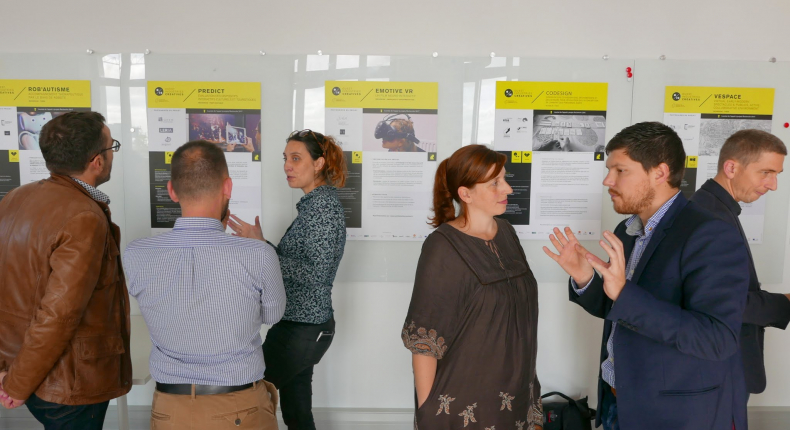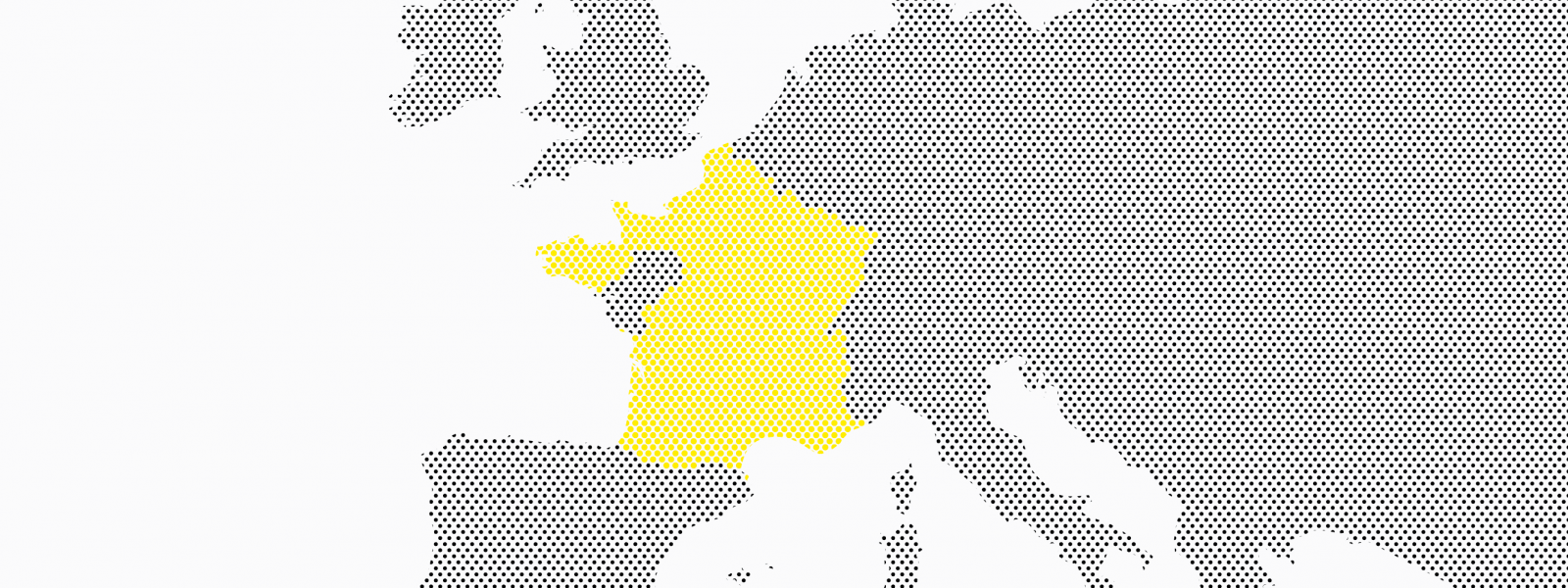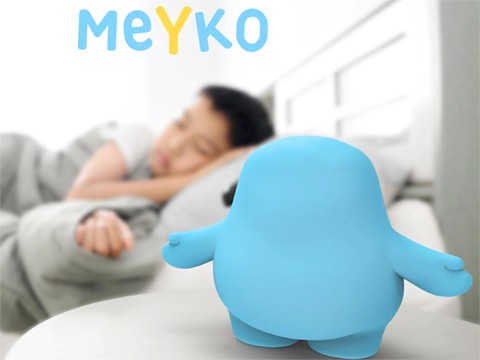West Creative Industries is a research, higher education and innovation programme in Pays de la Loire. It is formed of a consortium of 14 partners led by Université de Nantes in collaboration with L’École de design Nantes Atlantique, with the aim of building a regional excellence strategy about user experience, combining sciences, technology and creation.
West Creative Industries is dedicated to the conception and evaluation of users’ experiences of new products, services, places or artworks, which is to say their individually lived subjective and sensory experiences. It provides a shared testing ground between research labs, universities, public institutions and bodies and economic actors.
A regional research, higher education and innovation programme
West Creative Industries is one of twelve Recherche – Formation – Innovation [Research – Higher Education – Innovation] programmes started by the Pays de la Loire French region. It was decided to support topics based on the region’s economic and academic strengths favouring integrated RFI approaches. The objective was to conceive and put into action a common strategy to raise the profile and attractiveness of research, higher education and innovation in Pays de la Loire, but also all the actions taking place where they meet.
West Creative Industries is supported by Région Pays de la Loire, ERDF (European Regional Development Fund), Nantes Métropole and all its partners.

The program brings together science, technology and creation with nearly 8000 students and 100 researchers in its field in Pays de la Loire.

Human Experience, a transdisciplinary challenge
Experience whether it is that of a service, a product or the visit of a place, is at the heart of innovation in many fields. But what makes up an experience? Here we are dealing with understanding, conceiving and evaluating users’ individually and collectively perceived subjective experiences. A multi-disciplinary approach then becomes necessary to address aesthetic, psychological, ergonomic or technical aspects of the experience together.

As an example, Meyko, a connected companion for children with asthma, is a start-up from DU DESSiiN that brings together engineers and designers – © L’École de design.
West Creative Industries brings together regional academic and innovation skills to address contemporary transdisciplinary challenges related to experience. It unites multi-disciplinary contributions coming from the fields of creation (fine arts, design, architecture), digital sciences and human and social sciences, which make it possible to think about experience as a whole and to evaluate it
Experience and creation.
Artists and creators as designers of experienceArtists and creators are mediators capable of building original experiences by combining different ingredients. They are now being called upon by other sectors, such as tourism, health, industry and public services to contribute to the dynamics of their transformation, as major contemporary challenges require systemic and disruptive approaches. New synergies are emerging between creative activities, digital technologies, economics and user expertise that must be supported. WCI helps creators appropriate new digital tools and economic issues and scientists and engineers improve their understanding of creativity and multidisciplinary approaches..
New digital experiences.
Digital tools helping to build new experiences.The digital experience opens up new fields of reflection about technical, creative, economic, imaginary and psychological dimensions and on the way they relate to each other. West Creative Industries particularly focuses on the relationship between physical and virtual dimensions (for example, virtual, augmented and mixed realities constitute a bridge between physical and virtual dimensions). In a situation of virtual immersion, the role of the body is a regular question, as we live all of our experiences as physical ones.
Furthermore, digital tools foster a better understanding of experience. In particular, they can provide scientists with information on the user’s sensory experience, through sensors and algorithms that collect and analyse data. New methods are being developed at the intersection between the human and social sciences and the digital sciences to support the development of these tools.
Evaluation and valorisation of experiences
The multidisciplinary challenge of understanding, controlling and quantifying experience.- How do we handle the concept of experience when it involves subjectivity, or our personal judgements of quality? How do we model this aspect, formalize or quantify it? How can we integrate subjectivity into innovation and the design of products, services, places, etc.?
- Which tools and methods should be used considering the involvement of users in the design of the experience (e.g. co-design approach) ?
How should we analyse and take into account the imaginary dimension and representations as drivers of experience ? - Valorisation of experience: the experience economy is a subject of major interest for innovation considering the need for increasing differentiation.
West Creative Industries: a 5-year action programmens
The program aims to create bridges between research, higher education and innovation about user experience, with two objectives:
- To develop the design of new products, services, buildings or devices conceived as fully user-oriented experiences;
- To propose a field of experimentation for these new experiences, together with a pool of skills on the scientific evaluation of experience, making it possible to judge the subjective experience of the user. Experimentation therefore provides the field for validating or rejecting hypotheses (usage scenarios).
Objectives
for research, higher education, innovation and internationalizationResearch
Prefigure and create an interdisciplinary research centre on experience with European visibility.
Internationalization
Establish strategic international and develop joint curriculums, groundbreaking research, H2020 projects, etc.
Higher Education
Support pedagogical development and the emergence of new interdisciplinary curriculums addressing user experience:
- Raising awareness about economic and digital challenges among design, fine arts and architecture students;
- Raising awareness about creativity and interdisciplinary work among students in engineering and the humanities and social sciences.
Innovation
Develop projects between socio-economic actors, researchers and students by formally cataloguing regional skills on experience, supporting experiments and collaborative research projects.
Strategic areas of activity
WCI is designed to support 6 domains across the creative sector and in other areas of economic activityCreative industries
- Cultural economy, heritage & tourism
- Media, image
- Space design, landscape & lifestyle
Other areas
- Health, well-being
- Smart city – creative city
- Industry of the future


